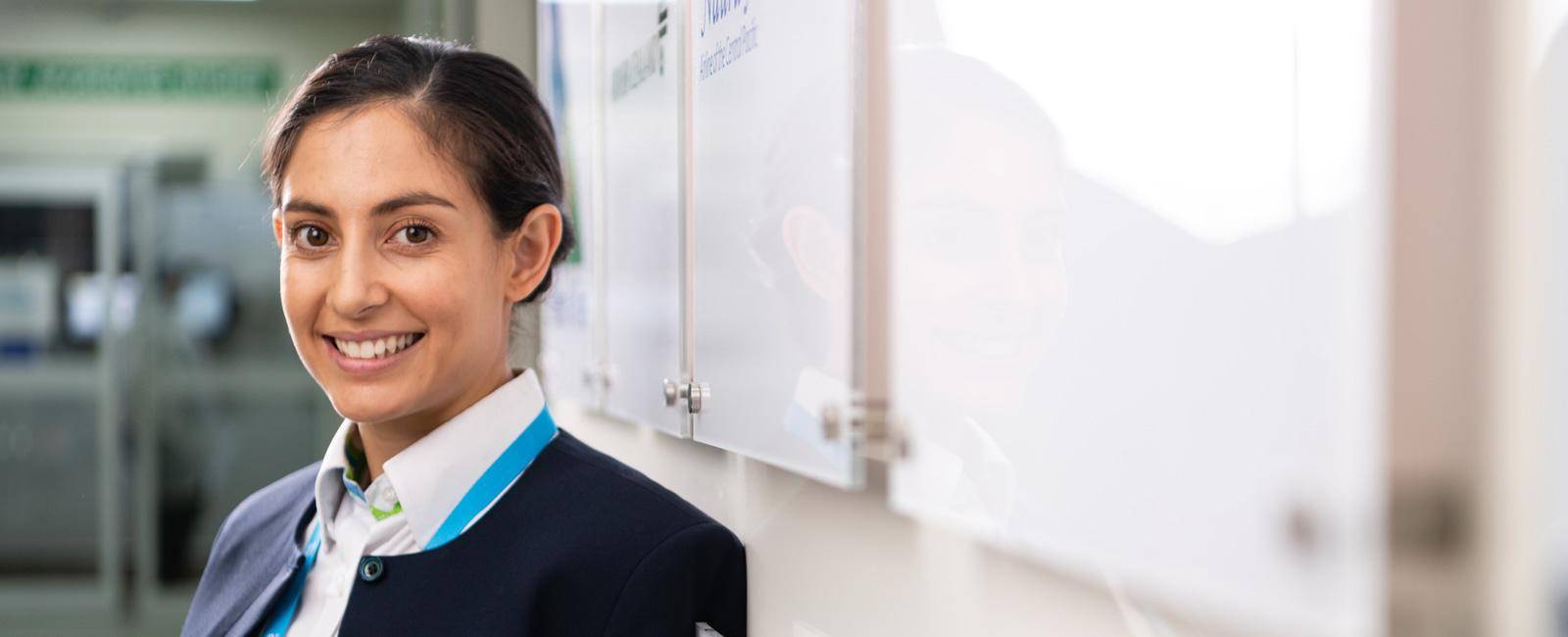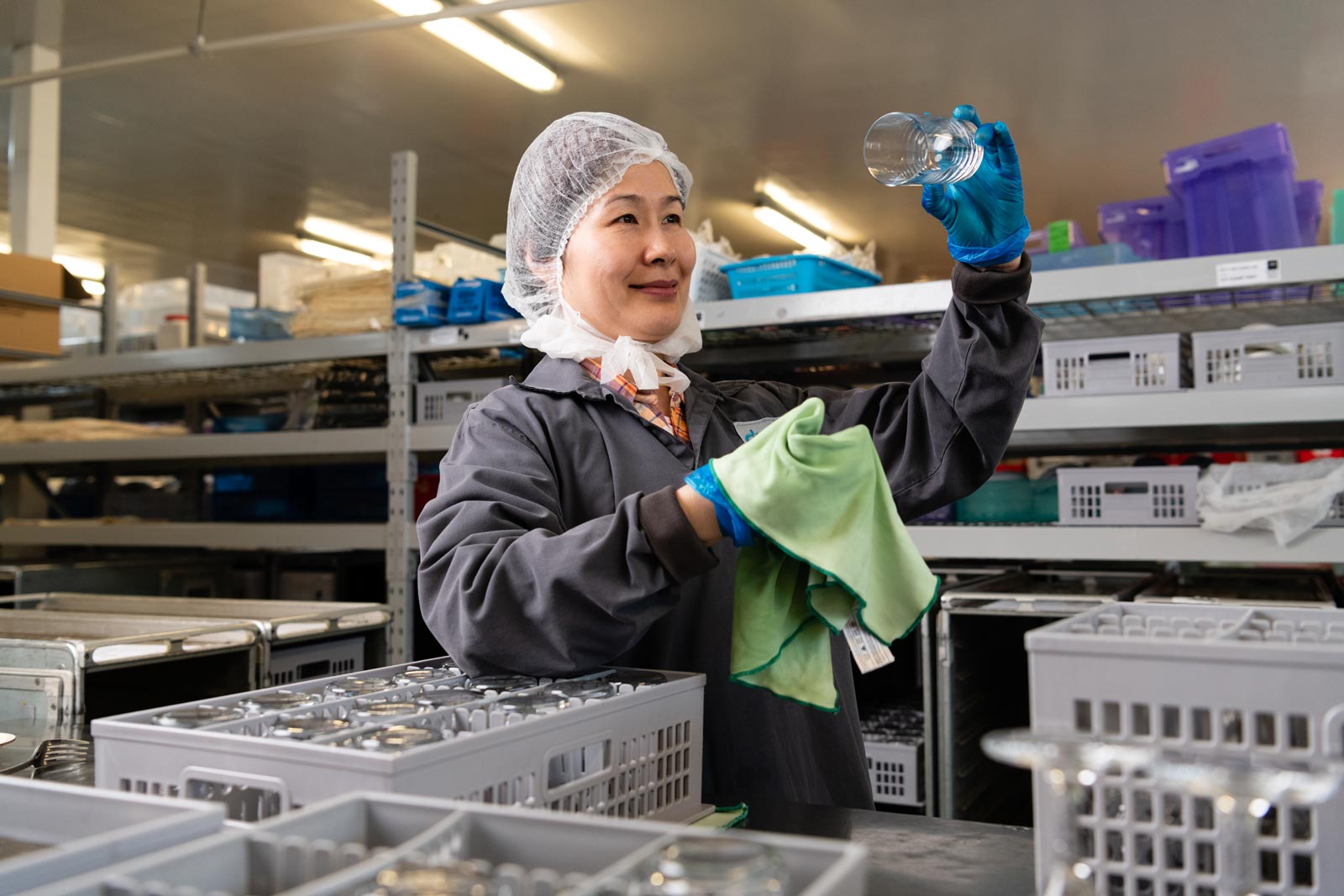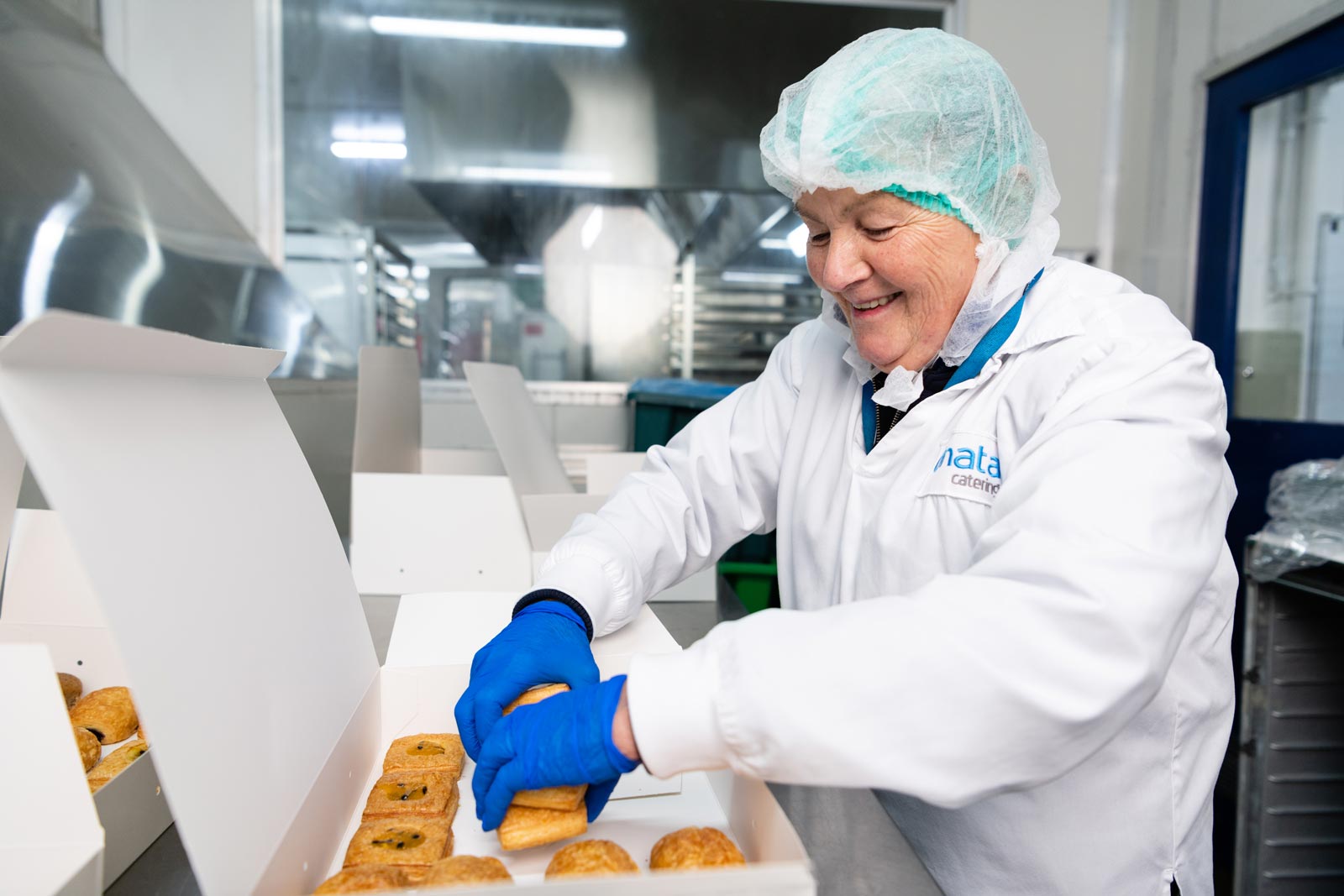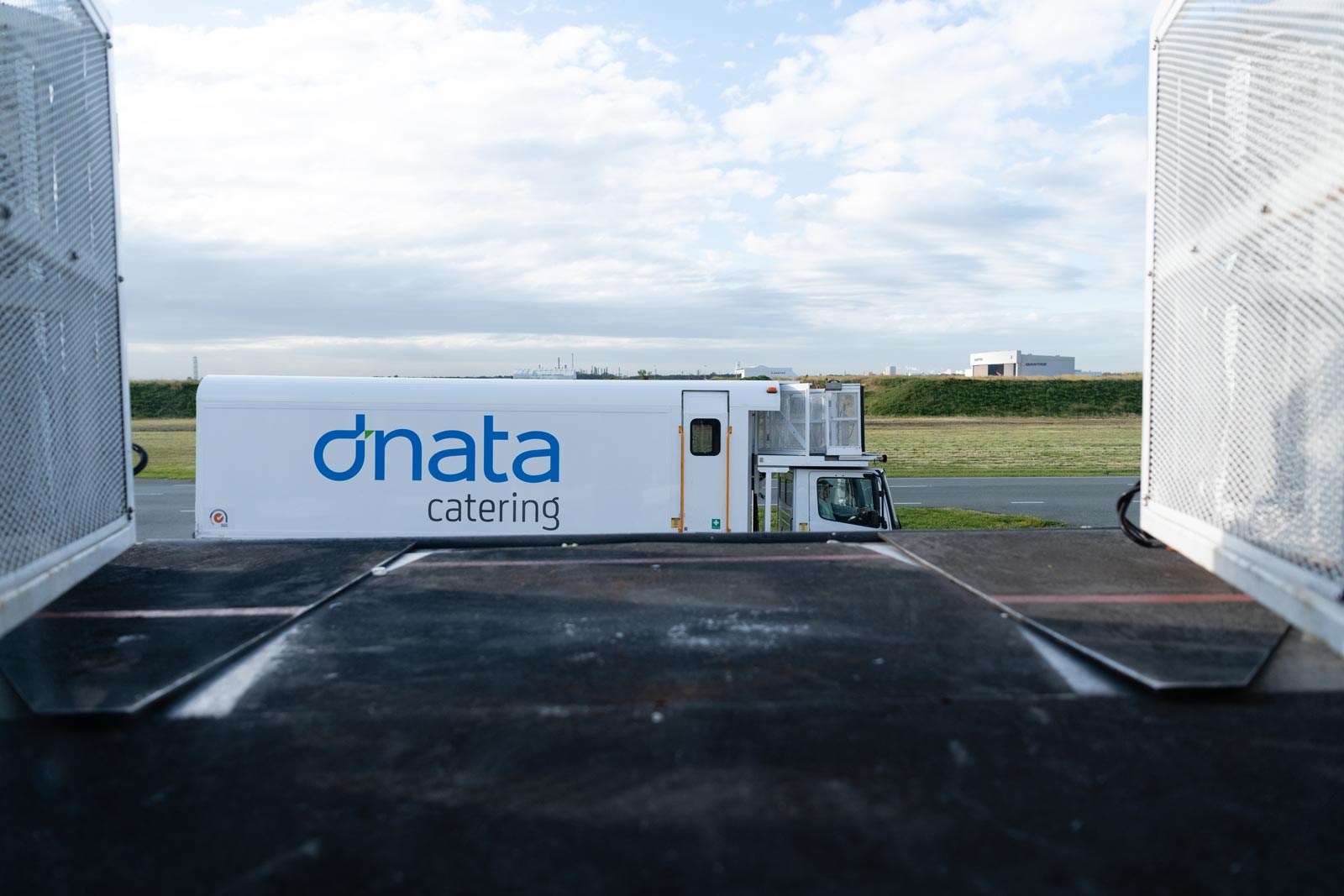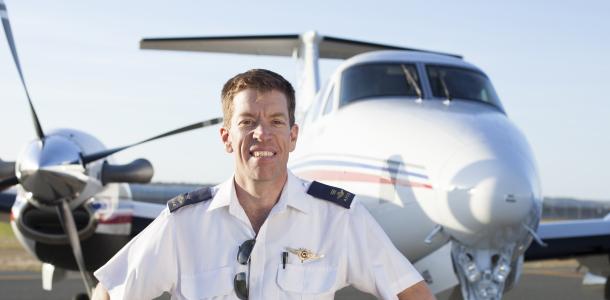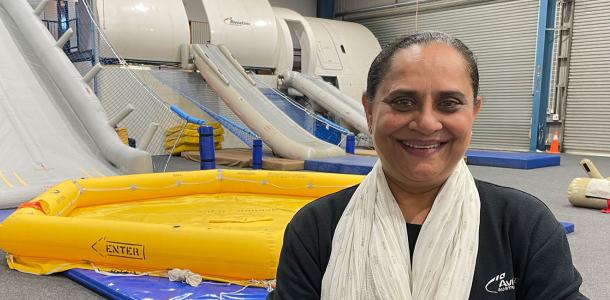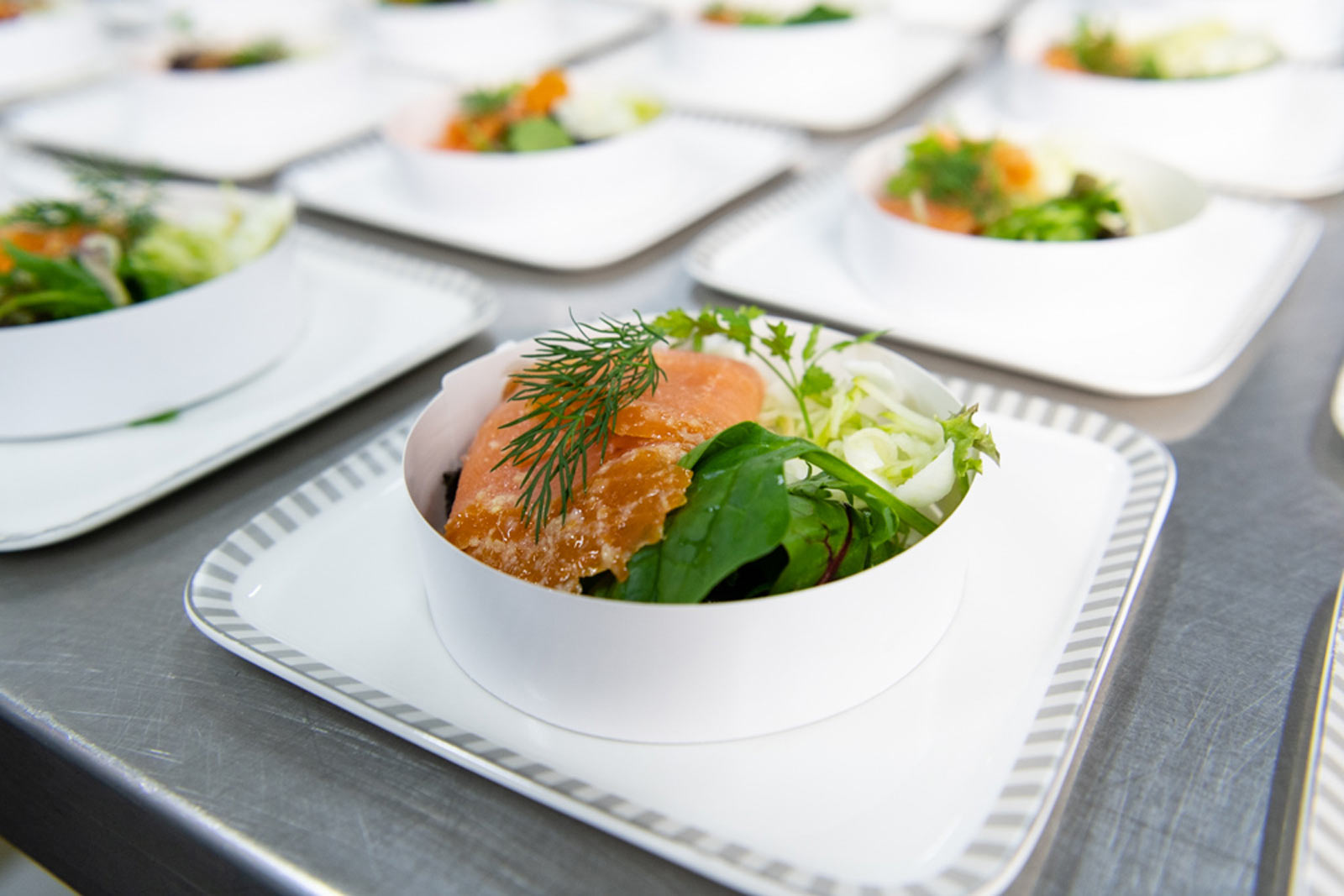
Hidden inside an innocuous white warehouse located ideally between Brisbane Airport’s International and Domestic Terminals, Rochelle Murphy starts her day as she always does.
Donning her disposable polypropylene food-safe coat and hair net, she carefully washes her hands before entering the processing area of dnata catering’s north building.
dnata is Australia’s largest inflight caterer, with more than 4,000 people employed across the country. There are 259 permanent and 60 casual employees alone in dnata catering’s north building, which just so happens to sit both ‘landside’ and ‘airside’ – a perfect location to ensure the best on-time performance for its airline customers.
As Customer Service Manager responsible for handling the expectations and hospitality needs of numerous airlines operating out of Brisbane Airport, Rochelle is a woman who moves with purpose and enthusiasm. She knows all of dnata’s internal teams and their respective responsibilities, and as she communicates airline-specific requests, it is always accompanied by the warmest of smiles.
“There is a genuine sense of teamwork and shared goals associated with helping our internal and external customers, and my role gives me the incredible opportunity to connect and work with all departments within our facility.”
Having been in the role for eight years, Rochelle is a master of processes and statistics. She has to be.
The complexities involved in producing more than 3.3 million meals each year are staggering, and they demand passionate people who have an innate understanding of the many different stages involved in creating quality inflight food.
“What passengers are presented with on their service tray is the culmination of many intricate tasks completed successfully by many areas of expertise. There are a range of strict guidelines and processes that need to be adhered to, including Halal and non-Halal segregation, food safety risk assessment plans, and hazard and critical control point which is a national food safety management system. Flexibility and mindfulness in adapting to constant change are must-haves in this industry.”
Most people would assume that producing such large numbers of meals would rely heavily on machinery and conveyor belts – a Westworld-like production line with airline meals in place of android hosts.
What most people wouldn’t expect? A sea of faces marked by a comforting mix of stern determination and friendliness, each responsible for a crucial, niche cog of the well-oiled machine that is dnata catering.
There’s Sue who diligently prepares the danishes for First Class, Gina who plates the appetisers for Economy Class, Jie who meticulously polishes glasses and rolls the cutlery for Business Class, and Baek in one of the two large kitchens whipping up some of the meal components that will soon be served thousands of feet above the ground.
It all starts with the goods receipt area, with more than 80 suppliers bringing in around 160 pallets of raw materials each week (think fresh produce, dry stores, packaging and airline stock). The numbers are impressive, with 800 kilograms of diced beef, 1,200 kilograms of diced chicken and two tonnes of dry ice considered among the weekly staples.
The fresh produce is then separated into groups and stored in cold rooms.
It is the epitome of hands-on and human-centric. Everywhere you turn, there are people driven by a common goal, and they all understand that the person standing next to them is just as important as they are.
From the dishwashing and equipment makeup areas to the inflight planning, kitchen and operations teams, each department acts as a tiny cog dependent on all others to successfully cater for more than 200 aircraft a week.
“There are many challenges encountered in the airline catering world, ensuring no two days are the same."
“The culinary teams have the challenge of designing meals that will present, taste and reheat well on-board in an environment that is low in pressure, has dry air and limited humidity, affecting your sense of smell and taste.“
dnata catering goes above and beyond to cater for all tastes and food intolerences, with up to 100 special meals provided on any given flight.
The most intriguing and incredibly thoughtful process they have in place? Ensuring all technical airline crew are not given a meal with seafood on-board and ensuring the Captain and Co-pilot are given different meals on-board to minimise the likelihood of adverse reactions.
Even the not-so-frequent flyer should feel reassured that such foresight and care is given to keeping all airline staff and passengers satiated and healthy!

